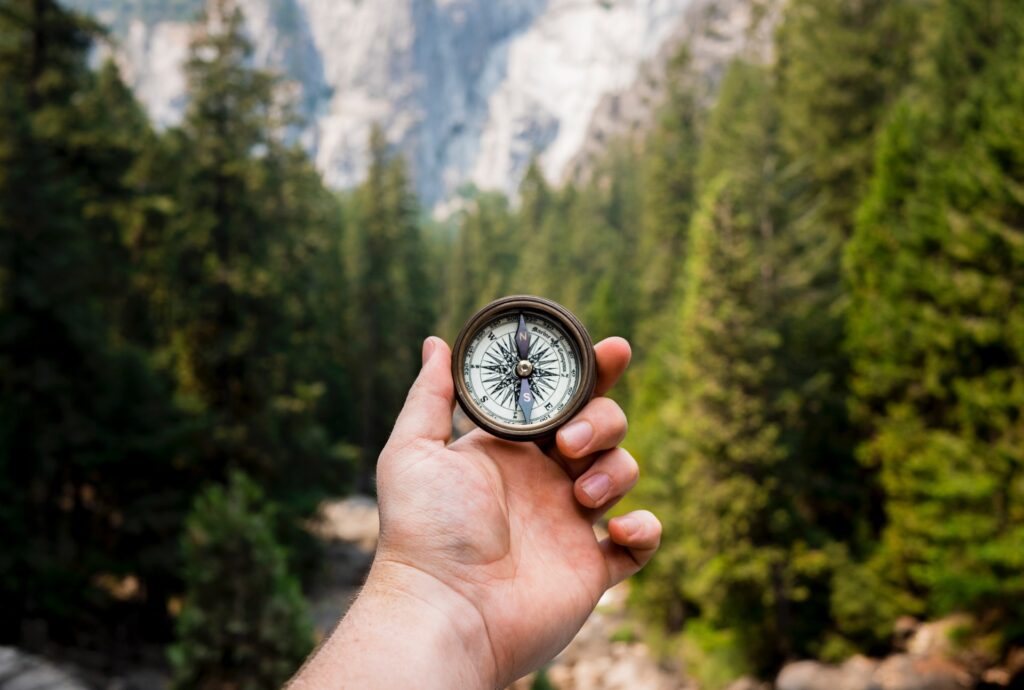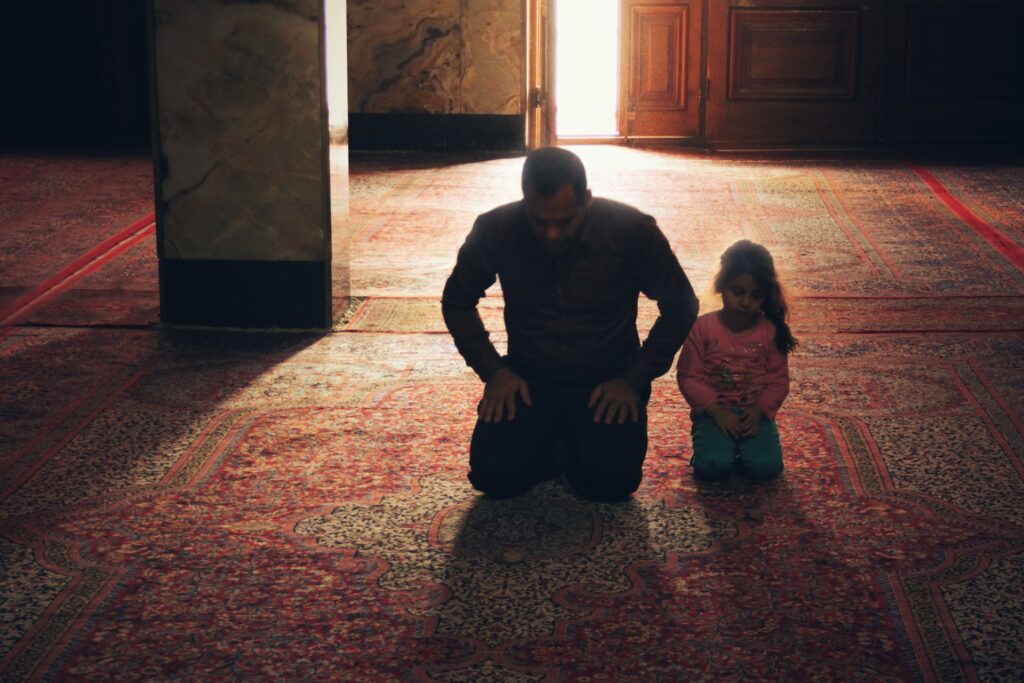The analogy of the king and the horse shows the various forms of gratitude people express.
Al-Ghazali used it in his book On Patience and Thankfulness.
So imagine a king who wants to go on a journey.
He does a favor to a person of his entourage by giving him a horse.
This man can have three types of joy depending on how he looks at the gift.
The first kind of joy focuses on the horse. It doesn’t care about who gifts it.
You can ride or race with the horse, or even sell it if you need to. And these are enough reasons to be delighted with the horse.
The second kind of joy doesn’t care about the horse.
The person is delighted because it came from the king.
If someone else gifts him the horse, it wouldn’t have the same flavor.
What’s important here is the king thought about the person and expressed his care through the horse.
The last kind of joy comes from the opportunity to be closer to the king.
The person uses the gift to ride on the same journey as the king.
What brings joy here is the proximity to the king.
For Al-Ghazali, the first kind is not thankfulness. The second one is characterizing the righteous. And the last one is the highest form of thankfulness.
What Studies Show

We might think the people focusing on the horse get no extra benefits. Studies show otherwise.
Robert Emmons is a professor of psychology at UC Davis. He is also the leading authority in the science of gratitude.
In one of his researches, he put people in a lab and split them into two groups.
One group keeps a gratitude journal.
Once a week, they write down five things they are grateful for.
The other group is just writing about the things happening in their lives.
After 10 weeks, here’s what he found.
The gratitude group was 25% happier, they slept for 30 minutes more per day, and exercise 30% more.
Just the fact of acknowledging the blessings seems to have positive effects. Even if it doesn’t care about the giver.
Keeping a gratitude journal produces a shift.
The mind focuses on what’s working instead of what doesn’t.
Thus, it becomes hard to feel negative emotions. One cannot be happy and depressed at the same time.
However, this type of gratitude is tiring in the long run. It can result in what they call gratitude fatigue.
Being grateful in the vacuum for your house, kids, money, health or relationships, has limited benefits.
Allah Self-Imposed Rule

When it comes to gratitude and thankfulness, Allah doesn’t put any condition:
“Remember that He promised, “If you are thankful, I will give you more.” [Quran 14:7]
While other things that Allah decreed depends on His will:
“Allah provides limitlessly for anyone He will.” [Quran 24:38]
“Allah does not forgive the joining of partners with Him: anything less than that He forgives to whoever He will.” [Quran 4:48]
Gratitude and thankfulness have a special status. And Allah made their reward special.
It’s like a mathematical equation: thankfulness=increase.
As Imam Ali said:
“Blessings arrive with gratitude [to Allah], and gratitude is connected with more [blessings], and the two are tied together: more blessings from Allah will never stop unless gratitude from the servant stops.” [Ibn Abī Al-Dunyā, Al-Shukr]
Some people will say: why Allah needs our gratitude?
This is the logic of arrogant people.
They’re living in the illusion of being out of need.
Allah never said He needs our gratitude:
“Whoever gives thanks benefits his own soul, and as for those who are thankless–Allah is self-sufficient, worthy of all praise.” [Quran 31:12]
Human Beings Are Ungrateful

Allah said:
“Man is ungrateful to his Lord–and he is witness to this.” [Quran 100:6-7]
The Arabic word used for ingratitude is kanoud. It also means cut off.
People benefit from the blessings but live their lives cut off from the Giver.
But why would people refuse to acknowledge they received so many blessings for free?
Many reasons for that. Among them:
1) We feel we are in control of our destiny and we owe nothing to others or God.
2) When we are self-absorbed, we develop narcissistic characteristics. Favors become a right.
The attitude of the entitled is to say I deserve this.
But the attitude of the grateful is to say: how comes I get more than I deserve?
Gratitude starts with humility. When we acknowledge our limitations and inaptitude to be self-sufficient.
As Mark T. Mitchell, professor of political science at Patrick Henry College in Virginia, said:
“Gratitude is born of humility, for it acknowledges the giftedness of the creation and the benevolence of the Creator. This recognition gives birth to acts marked by attention and responsibility. Ingratitude, on the other hand, is marked by hubris, which denies the gift, and this always leads to inattention, irresponsibility, and abuse.”
The Purpose of Our Existence

Islam makes a big deal of gratitude.
Actually, Allah made it the purpose of our lives:
“We created man from a drop of mingled fluid to put him to test; We gave him hearing and sight; We guided him to the right path, whether he was grateful or not.” [Quran 76:2-3]
In the end, gratitude is more a choice than an emotion.
The blessings to be grateful for are numberless:
“If you tried to count Allah’s blessings, you could never take them all in: He is truly most forgiving and most merciful.” [Quran 16:18]
So gratitude seems the obvious choice to make. But it’s not what everyone does:
“[People], do you not see how Allah has made what is in the heavens and on earth useful to you, and has lavished his blessings on you both outwardly and inwardly? Yet some people argue about Allah, without knowledge, or guidance or an illuminating scripture.” [Quran 31:20]
The Arabic word kufr in the Quran means both ingratitude and disbelief.
Being ungrateful is rejecting Allah as the source of blessings, and thus, disbelief in Him.
Gratitude Secures Our Blessings
In the twinkling of an eye, one of the jinns brought the throne of the Queen of Sheba. Suleiman (AS) then said:
“This is a favor from my Lord to test whether I’m grateful or not.” [Quran 27:40]
Some people mistakenly think we are only tested during hard times.
In reality, the good times are also a test:
“Allah presents the example of a town that was secure and at ease, with provisions coming to it abundantly from all places. Then it became ungrateful to Allah’s blessings, so Allah afflicted it with the grip of famine and fear, for what its people had done.” [Quran 16:112]
It is easier to forget about Allah during the good times than the bad ones. And by doing so, we’re calling for a reminder:
“Why should Allah make you suffer torment if you are thankful and believe in Him? Allah always rewards gratitude and He knows everything.” [Quran 4:147]
This verse is embarrassing for the believer.
The One who gives us so many blessings is grateful to us for being grateful.
Allah shows appreciation for our gratitude, even though we are the ones benefitting from the blessings!
How can we not be grateful?
Gratitude Is an Action

After mentioning all the blessings given to David and Solomon (mountains, birds, softening iron, wind, jinn), Allah said:
“Work thankfully family of David, for few of My servants are truly thankful.” [Quran 34:13]
Just like the one who sees the horse as a way to get closer to the king, our deeds need to demonstrate thankfulness.
And we do so by doing more of what pleases the One who bestows the gifts.
The truly thankful find ways to be grateful even in hard times.
They know there is still a lot to thank for.
As Ibn Abbas said:
In every tribulation there are three blessings:
1)- It could have been worse.
2)- It was in your worldly matters and not in your religion.
3)- The tribulation is in this world, and not in the hereafter.
In the end, our limited knowledge prevents us from knowing what is good and what is bad for us:
“You may dislike something although it is good for you, or like something although it is bad for you: Allah knows and you do not.” [Quran 2:216]
Final Thoughts

Even if we can never thank Allah as He deserves, we must try.
Allah accepts our small and imperfect thanks and makes them much bigger and more rewarding.
The rewards for gratitude are many: gaining the pleasure of Allah and His appreciation, obtaining more, securing what we have, getting closer to Him…
And the only way to benefit from these rewards is to ask for Allah’s help.
Making dua to be thankful is a powerful tool available to all of us.
As the Messenger of Allah (ﷺ) said to Muadh Bin Jabal:
O Muadh, By Allah, I love you and advise you not to miss supplicating after every Salat (prayer) saying:
‘O Allah, help me remember You, expressing gratitude to You and worship You in the best manner’.
Another dua, from the Quran this time, said by Solomon (AS):
“Lord, inspire me to be thankful for the blessings You have granted me and my parents, and to do good deeds that please You; admit me by Your grace into the ranks of Your righteous servants.” [Quran 27:19]
May Allah help all of us to be thankful.
Article posted the 31 October 2021
Popular Articles
- Allah According to Allah: The Beauty Behind the Verse of Light
- 7 Lessons from Luqman that Will Make You Wise
- How to Enjoy Salat and Make it Meaningful
- Are Muslims Meant to Be Sleep Deprived?
- For or Against Vaccines? That’s Not Really the Question
- Islamic Psychology: A Model Where Faith Has Its Place
- Blindness: From the Invisible Gorilla to the Quranic Perspective
- Muslims’ Unity: A Powerful Solution That Takes Its Time
- The Certainties of Muslims in Uncertain World
- Mongols Invasions: Some Forgotten Lessons to Today’s Muslims
- How to Make People Change their Mind: Persuasion!
- A Few Thoughts For Muslims
- How to Honor the Prophet?
- Muslims Judging Each Other: Why and How to Be Less Judgy

